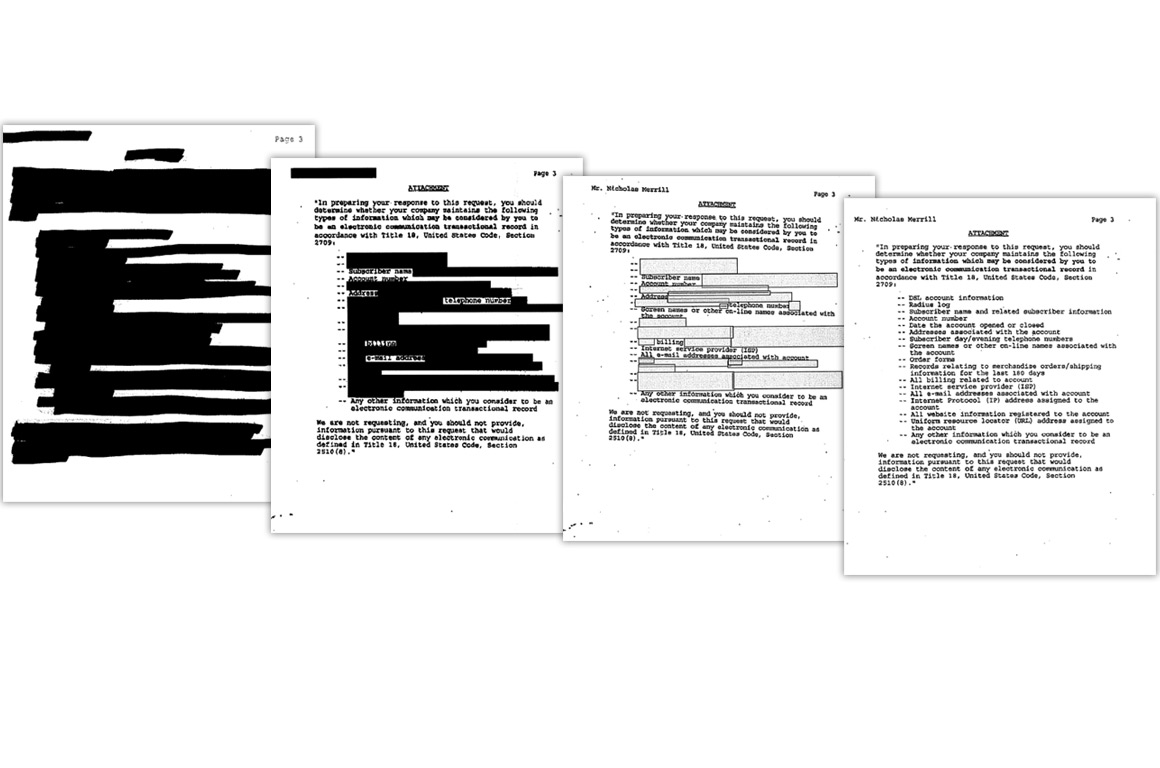ACLU Urges Federal Appeals Court to Uphold Two Rulings Blocking FBI's Use of Patriot Surveillance Power
FOR IMMEDIATE RELEASE
Contact: media@aclu.org
Hearing Comes as Congress Debates Patriot Act Reauthorization
NEW YORK – In the first federal appeals court argument addressing a surveillance provision of the Patriot Act, the American Civil Liberties Union today urged a three-judge panel to uphold two separate rulings: one which found the National Security Letter (NSL) authority of the Patriot Act unconstitutional and another that struck down a gag imposed under the same statute. The controversial NSL provision authorizes the FBI to demand a range of personal records without court approval, including records of Web site visits, e-mail addresses and library records.
“”As two separate lower courts have found, the National Security Letter authority is both extreme and undemocratic,”” said ACLU Associate Legal Director Ann Beeson, one of the attorneys arguing before the panel today. “”The secrecy surrounding this law has prevented the public and even Congress from learning how the FBI is using its new powers. One of the ultimate ironies of these cases is that the Patriot Act has effectively gagged free speech about the Patriot Act.””
Beeson noted that the government had asked the court to close part of today’s hearing to the press and the public, but the appeals court rejected that motion on Monday.
At issue in today’s hearing are two challenges brought by the ACLU in New York and Connecticut to a surveillance provision that was dramatically expanded by Section 505 of the Patriot Act. The Patriot Act amended the existing NSL power by permitting the FBI to demand records of people who are not suspected of any wrongdoing. Anyone who receives an NSL is gagged — forever — from telling anyone that the FBI demanded records. Lower courts in both cases held that the NSL provision violates the Constitution.
In the first case, brought by the ACLU on behalf of an anonymous Internet Service Provider, Judge Victor Marrero struck down the entire NSL statute on September 29, 2004, saying, “”democracy abhors undue secrecy.”” In that landmark ruling, the court held that the unlimited gag imposed by the NSL law violates free speech rights under the First Amendment. The court also held that the statutory authority conferred upon the FBI to demand records without any judicial supervision violates the Fourth Amendment’s protection against unreasonable searches and seizures. Judge Marrero stayed his injunction against the law to give the government an opportunity to appeal.
In the Connecticut case, the ACLU is representing a member of the American Library Association that possesses sensitive information about library patrons, including circulation records and records relating to Internet usage. In her September 9, 2005 decision in that case, U.S. District Court Judge Janet Hall issued a preliminary injunction that would allow the ACLU’s client to disclose its identity without fear of violating the gag provision. The court held that the “”John Doe”” organization has a First Amendment right to engage in the “”current and lively debate in this country over the renewal of the Patriot Act.””
Judge Hall also stayed her ruling pending the government’s appeal, but the ACLU asked the appeals court to vacate the stay, saying that Congress should be able to hear from individuals who have been directly affected by the powers currently being debated. The ACLU’s emergency motion to vacate the stay ultimately went to Justice Ruth Bader Ginsburg, who declined to lift the stay at that time but issued an unusually detailed opinion in which she noted the merits of the ACLU’s arguments.
“”In its defense of this new surveillance power, the government is proposing a wholesale redefinition of our basic rights to free speech and privacy,”” said ACLU attorney Jameel Jaffer, who is also appearing before the court today. “”The lower courts properly rejected the government’s radical arguments and we urge the appeals court to do the same.””
A great deal of information about both cases remains under seal due to the gag order. If the appeals court upholds the lower court rulings, the entire Patriot Act provision will be invalidated and the ACLU’s clients will be allowed — for the first time — to speak publicly about their cases, Jaffer said.
The combined cases are being heard before Judges Richard J. Cardamone, Joseph M. McLaughlin and Barrington D. Parker, Jr. of the Second Circuit Court of Appeals in lower Manhattan.
Attorneys in the case are Beeson, Jaffer and Melissa Goodman of the National ACLU and Arthur Eisenberg, Legal Director of the New York Civil Liberties Union.
The ACLU has created a special Web page on its National Security Letter litigation, which includes links to legal papers in both cases, online at www.aclu.org/nsl. Further information about government secrecy and gag orders is available at http://action.aclu.org/reformthepatriotact/nsl.html
Stay Informed
Sign up to be the first to hear about how to take action.




